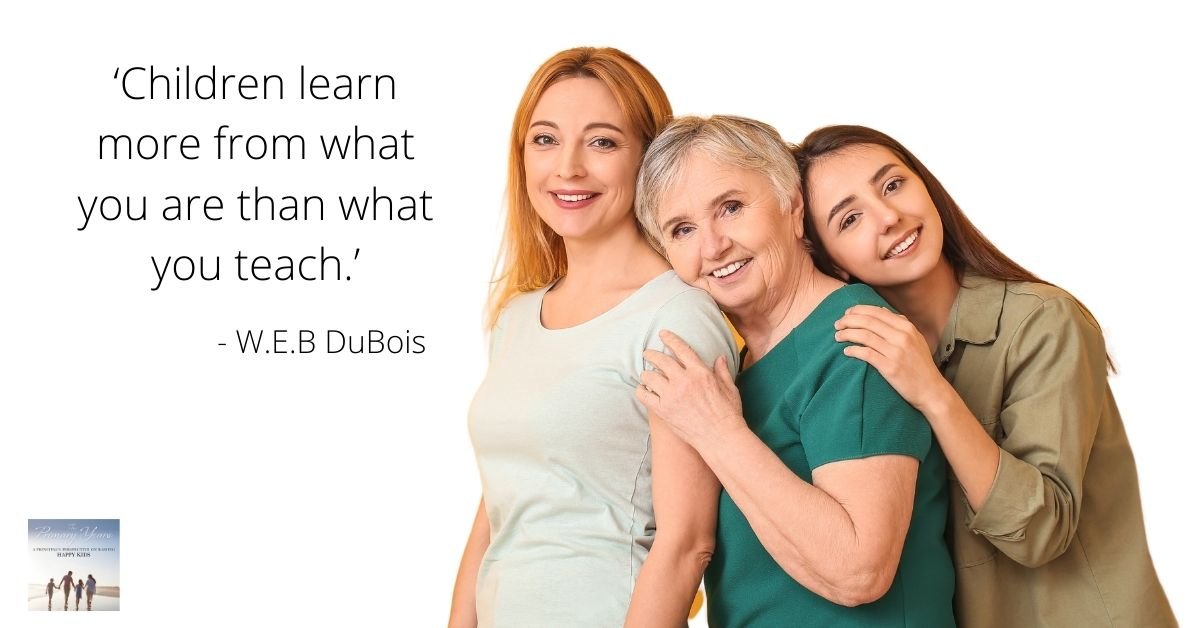
Careful about jumping to conclusions
We all tend to jump to conclusions from time to time. I believe it is part of our mental defence against getting hurt in any way. When we do this in front of our children, we teach them that a quick reaction is the best and most likely accurate response, which we know often is not. Read on for some tips to help us to stop jumping to conclusions and teaching our kids by example some better options.

Time to remind yourself that being a parent is a wonderful experience
A reminder to cherish the wonders of being a parent.

Nurturing Emotional Intelligence in Children: Emphasising Emotional Care
Parenting tips on how to emotionally care for and support your child to help nurture their emotional intelligence.

How to get the best from your child's teacher
Read some suggestions on how you could plan a productive time with your child’s teacher.

How best to talk to your children
Communication is key. Here are some parenting tips for effectively communicating with your children.

Learning about being responsible
Responsibility is a part of our makeup and challenges us throughout life. Here are some parenting tips to positively introduce responsibility to your child.

Slow down and gain more time. It makes for better parenting and personal growth
Life is always busy, especially during the Christmas and holiday season. This blog shares a reminder to parents to slow down and spend time with your child.

What to think about at this stage of the school year
This school year is coming to an end. Here are some parenting suggestions to prepare and positively embrace change with your child.

Keeping the stress level down is a great asset as a parent
Stress is a natural part of life, especially when you're a parent. Here are a few ways to reduce your stress level for yourself and your child.

9 Tips about how to help your child love learning
Learning is a crucial part of life and the development of a child. Here are nine simple parenting tips which may encourage learning for your child.

Choose your battles. That’s the best win.
When raising a child, it is important you pick your battles wisely. Read some parenting tips you may find helpful in these situations.

Tiredness can be a killer at times
This blog provides helpful parenting tips when tiredness is affecting parent and child communication, read more.

How to motivate your child to learn
Motivating your child to learn can be quite challenging, here’s a few parenting tips on how to keep your child motivated to learn inside and outside of the classroom.

A few tips to get you started in term four
The school year is quickly coming to a close. Here are a few parental tips that can assist your child with their final term of the year. Read here for more information.

Help your child to accept and enjoy their differences
Children's uniqueness is a crucial part of who they are as individuals. Read some parenting tips to consider on how to embrace and positively encourage diversity.

Learn to complete things - an important lesson for our children
Not completing things is a form of self sabotage where you may get bored easily and literally stop short of being successful. It can be very habit forming and a way of dealing with things that just seem too hard. Sound familiar? We are all guilty of it, but we can play a role in teaching children how to follow through and make decisions to commit and see something through.

11 ways to help your child become settled and have the best opportunities at school
Read here for 11 ways to help your child become settled and have the best opportunities at school.

The value you have to your child
We appreciate that we are important and that we hold great responsibility and balance of power in taking care of our child. I wonder how often we think about the value we give to our child.
Dr Seuss said “To the world you may be one person; but to one person you may be the world.”

Being a mum - something to think about
I have learnt some precious realities in watching mums raise a family, live with it and through it, suffer all the hardships, carry the weak moments and rise above the troubled spots. Now that’s being a mum!